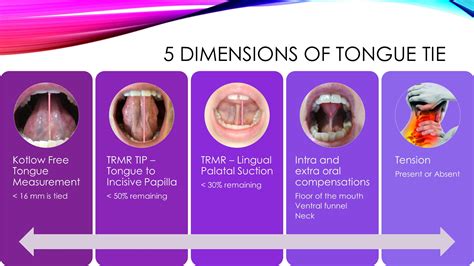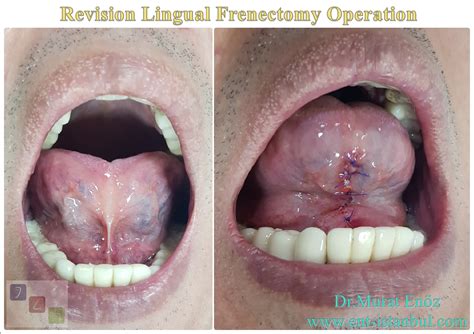Intro
Discover the causes and treatment options for a tied tongue in newborns. Also known as ankyloglossia, this condition can affect feeding and speech development. Learn about the symptoms, diagnosis, and surgical and non-surgical treatments available to help your baby thrive. Get expert advice on how to care for a newborn with a tied tongue.
As a new parent, it's natural to have concerns about your baby's health and well-being. One condition that may cause worry is a tied tongue, also known as ankyloglossia. A tied tongue is a condition where the tongue is attached to the floor of the mouth by a piece of tissue called a lingual frenulum. In newborns, this condition can cause feeding difficulties, speech problems, and other issues. In this article, we'll explore the causes and treatment options for tied tongue in newborns.

Causes of Tied Tongue in Newborns
A tied tongue is a congenital condition, meaning it's present at birth. The exact cause of tied tongue is still unknown, but research suggests that it may be related to genetics, fetal development, or a combination of both. Some studies suggest that babies born to mothers who have a family history of tied tongue are more likely to develop the condition.
Symptoms of Tied Tongue in Newborns
The symptoms of tied tongue in newborns can vary depending on the severity of the condition. Common symptoms include:
- Difficulty latching or breastfeeding
- Trouble swallowing or feeding
- Vomiting or spitting up after feeding
- Fussiness or irritability during feeding
- Slow weight gain or poor growth
Diagnosis of Tied Tongue in Newborns
Diagnosing tied tongue in newborns typically involves a physical examination by a pediatrician or a lactation consultant. During the examination, the healthcare provider will assess the baby's tongue mobility and look for signs of a lingual frenulum. In some cases, a tongue-lift test may be performed to assess the baby's tongue mobility.

Treatment Options for Tied Tongue in Newborns
Treatment for tied tongue in newborns depends on the severity of the condition and the symptoms. In some cases, no treatment may be necessary, and the condition may resolve on its own. However, in more severe cases, treatment may be necessary to improve feeding and speech.
Laser Frenectomy
A laser frenectomy is a surgical procedure that involves using a laser to release the lingual frenulum. This procedure is typically performed by a pediatrician or an ear, nose, and throat (ENT) specialist. The procedure is usually quick and painless, and the baby can breastfeed immediately after.
Clipping or Cutting the Frenulum
Clipping or cutting the frenulum is another treatment option for tied tongue. This procedure involves using scissors or a specialized instrument to release the lingual frenulum. This procedure is usually performed by a pediatrician or an ENT specialist.

Benefits of Treatment
Treatment for tied tongue in newborns can have several benefits, including:
- Improved feeding and breastfeeding
- Reduced risk of speech problems
- Improved tongue mobility and coordination
- Reduced risk of oral health problems
Complications of Untreated Tied Tongue
If left untreated, tied tongue can cause several complications, including:
- Feeding difficulties and poor growth
- Speech problems and articulation difficulties
- Oral health problems, such as tooth decay and gum disease
- Social and emotional difficulties, such as low self-esteem and anxiety

Conclusion
Tied tongue is a common condition in newborns that can cause feeding difficulties, speech problems, and other issues. While the exact cause of tied tongue is still unknown, treatment options are available to improve feeding and speech. If you suspect that your baby has a tied tongue, it's essential to consult with a pediatrician or a lactation consultant to determine the best course of treatment.
What is tied tongue in newborns?
+Tied tongue, also known as ankyloglossia, is a condition where the tongue is attached to the floor of the mouth by a piece of tissue called a lingual frenulum.
What are the symptoms of tied tongue in newborns?
+Symptoms of tied tongue in newborns include difficulty latching or breastfeeding, trouble swallowing or feeding, vomiting or spitting up after feeding, fussiness or irritability during feeding, and slow weight gain or poor growth.
How is tied tongue diagnosed in newborns?
+Diagnosing tied tongue in newborns typically involves a physical examination by a pediatrician or a lactation consultant. During the examination, the healthcare provider will assess the baby's tongue mobility and look for signs of a lingual frenulum.
